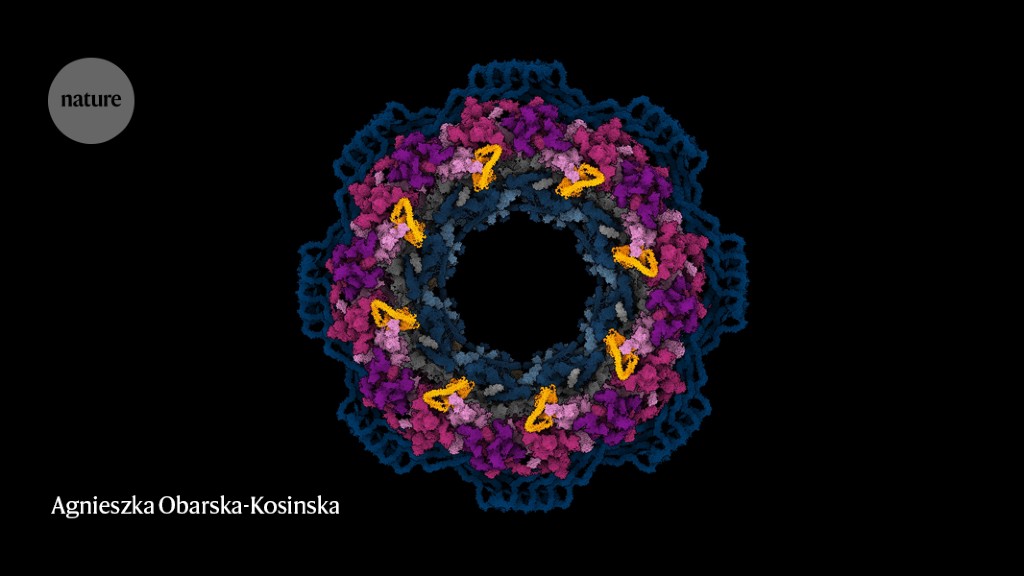"For more than a decade, molecular biologist Martin Beck and his colleagues have been trying to piece together one of the world's hardest jigsaw puzzles: a detailed model of the largest molecular machine in human cells.
"This behemoth, called the nuclear pore complex, controls the flow of molecules in and out of the nucleus of the cell, where the genome sits. Hundreds of these complexes exist in every cell. Each is made up of more than 1,000 proteins that together form rings around a hole through the nuclear membrane."
"These 1,000 puzzle pieces are drawn from more than 30 protein building blocks that interlace in myriad ways. Making the puzzle even harder, the experimentally determined 3D shapes of these building blocks are a potpourri of structures gathered from many species, so don't always mesh together well. And the picture on the puzzle's box -- a low-resolution 3D view of the nuclear pore complex -- lacks sufficient detail to know how many of the pieces precisely fit together."
"Then, last July, London-based firm DeepMind, part of Alphabet -- Google's parent company -- made public an artificial intelligence (AI) tool called AlphaFold2."
"This is like an earthquake. You can see it everywhere. There is before July and after."
"This year, DeepMind plans to release a total of more than 100 million structure predictions. That is nearly half of all known proteins -- and hundreds of times more than the number of experimentally determined proteins in the Protein Data Bank (PDB) structure repository."
What's next for AlphaFold and the AI protein-folding revolution
#solidstatelife #ai #biology #proteomics #proteinfolding #deepmind #alphafold

There are no comments yet.